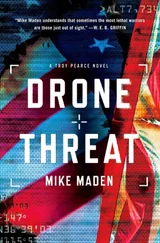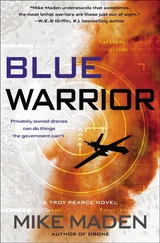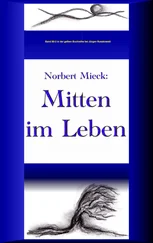“Today, there are over eight hundred Chinese corporations operating in nearly every nation on the African continent,” the analyst began. “Many of them are engaged in resource extraction to meet the growing demand of our rapidly expanding industrial and manufacturing sectors.” Icons matching African resources and Chinese industries flashed in sequence. “Every day, new resource potentials are being discovered and developed across the continent, but none so important as the recent location of new uranium and, amazingly, massive rare-earth-element deposits here in the Saharan desert, in the far reaches of Mali. In fact, Mali may have the world’s single greatest known deposit of lanthanum.”
The screen zoomed in on an image of northeastern Mali to emphasize its importance. The executives gathered around the table whispered excitedly. Lanthanum was critical for the manufacture of batteries. Hybrid cars like the Toyota Prius required more than ten kilograms of the mineral per vehicle, and more hybrids were being brought to the market every day. China itself was now the world’s largest car market, and hybrids were key to the expansion of that market. The startling new REE discovery in Mali was obviously the reason why this top secret emergency meeting had been called.
“As you are all well aware, China is the world’s largest producer of rare earth elements, giving us nearly monopolistic control over their use. This allows us to minimize their costs for ourselves but also deny their use to our biggest competitors.” From an earlier briefing, Zhou knew that the seventeen chemical elements on the periodic table known as REEs weren’t, technically, “rare” so much as widely dispersed throughout the earth’s crust—but seldom in harvestable amounts. Those elements were critical in other key new technological products like wind turbines, lasers, and cell phones. China was the country with the greatest concentration of REE deposits and was currently mining between 80 and 90 percent of all REEs today. That near monopoly provided China with a significant competitive advantage it had no intention of relinquishing. That competitive advantage was one of the reasons why Los Angeles Metro had purchased its first all-electric buses from the Chinese corporation BYD.
“Fortunately,” the analyst continued, “Mali has recently signed new contracts with the Sino-Sahara Oil Corporation, which includes provisions for all other forms of underground resource acquisition. Unfortunately, Mali, like most other African nations, might soon be tempted to reconsider the terms of the very generous contracts we have signed with them. They also have an indigenous population problem in the area.”
“You mean the Tuaregs,” Zhao said. Prior to his new appointment, Zhao had thrown himself into research into the Sahara region. The vast desert occupied significant portions of Mali, Algeria, Niger, and Libya, which also happened to be the most important resource states in the area. Nomadic Tuareg warrior clans had freely roamed the vast Sahara since the fifth century before Christ.
“The Mali government has already begun operations to nullify the Tuareg problem,” the analyst said. “They are fractured and disorganized.”
“Are you referring to the Africans or the Tuaregs?” one of the executives blurted out. The room exploded with laughter. Even the stoic chairman grinned.
“The Tuaregs have been restless for quite some time,” Zhao interrupted. “Are you confident the government in Bamako is on top of this?”
The analyst smiled. “I believe the term Tuareg in Arabic means ‘abandoned by God.’ So, yes, unless God shows up, President Kouyaté should be able to quell them soon enough.”
“You just can’t trust a damn African,” a voice in the dark muttered. It was the vice president of one of the civil engineering firms building new highways in the rapidly expanding northern corridor. Murmurs rumbled around the table as graying heads nodded in agreement. “The Kenyans canceled one of our contracts for the new highway expansion project between Mombasa and Nairobi last week. They claimed there were environmental concerns, but all they really were concerned about was more money.” The middle-aged executive slowly rubbed his open palm for emphasis.
Zhao knew what the engineer said was true, but it was only a small piece of the picture. China’s decades-old policy of “noninterference” in the domestic affairs of other nations meant his government would gladly do business with the tyrants and despots that the West shunned on humanitarian grounds. Chinese government and business officials also freely issued “soft” development funds and loans—financial transactions unencumbered by human rights provisions or even basic accounting principles. These aid packages were giant pots of money from which greedy, cruel African elites could dip freely for their personal use so long as Chinese interests were also served in the process.
Chinese firms were also quick to provide arms, ammunition, and other contraband items denied to dictatorial regimes by the moralizing Western powers. Security treaties and Chinese military bases soon followed. By such means, China swifly gained lucrative footholds across the continent.
But the other reality, Zhao knew, was that Chinese firms wreaked terrible environmental damage all over Africa in recent years—just as they had in their own country for decades. Over eight million acres of arable Chinese land were now so polluted they could never be used for food production. Arable land had decreased in China even as industrialization exploded. Africa, on the other hand, possessed the world’s largest supply of arable land and could amply serve as China’s new food basket if exploited properly.
Chinese companies also imported their own labor, even low-skilled positions, and dominated local economies. They were as rapacious and colonizing as the Great Powers had been in the nineteenth century, lacking only the missionary zeal of “the white man’s burden” to justify their efforts. The Chinese government no longer had any vested interest in spreading the gospel of communism, as it once had in the sixties—such quaint sentiments were bad for business. Freshly minted Third World communist revolutionaries tended to nationalize key industries, and Chinese businessmen held no interest in that. Neither did Zhao. He fully appreciated the Africans’ concerns, but he didn’t care about them. Like his own government, Zhao was a supreme pragmatist. Economic development always came at a high price, and every great nation had to pay it at one time or another. If Africa wanted to develop with China’s help, Zhao reasoned, it should have to do so on China’s terms.
The bottom line for African governments, even the despotic ones, was that they were beginning to count the true costs of doing business with a predatory partner like China and found the transactions wanting. They were changing up the rules of the Chinese game with the help of the opportunistic West. It was a worrying proposition for the Politburo. The general secretary himself had visited the African continent on his first official overseas tour abroad to underscore China’s interest in the region, and its concerns.
“Thank you for the excellent presentation, Mr. Li,” the chairman said as the lights went up. The MSS analyst bowed gratefully and took his seat. The chairman continued. “The Standing Committee has decided to draw a line in the sand in Mali. We want to create a new model of secure cooperation and development for our other African partners. The future of China depends upon it. That is why I am calling upon the resolute Mr. Zhao Yi to represent us in the Malian venture.” The chairman waved a hand at his nephew, who stood, beaming with confidence. All eyes turned to him.
Читать дальше












